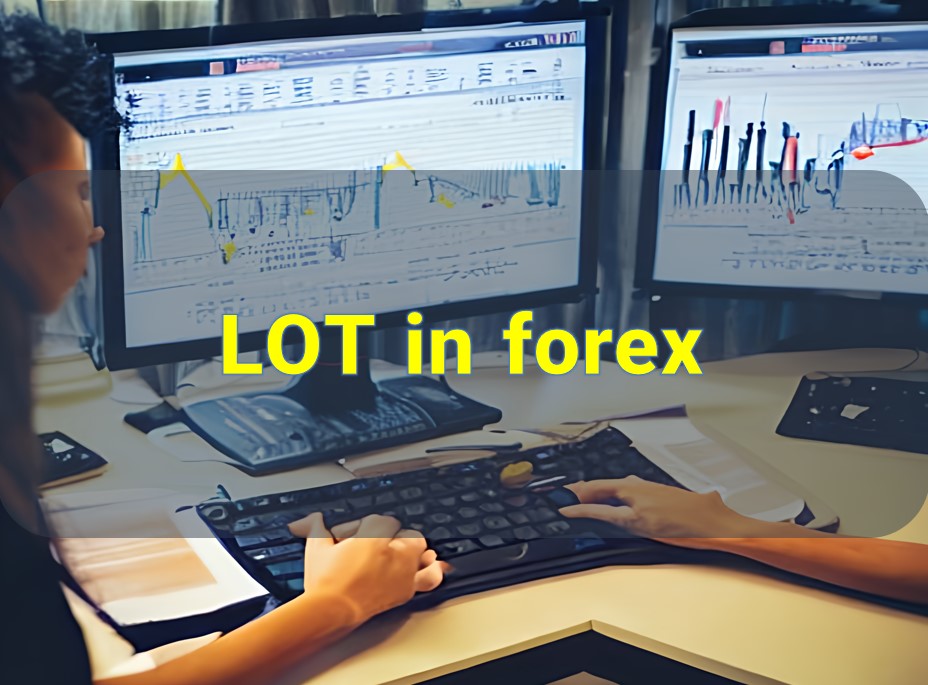In today’s complex and ever-evolving financial landscape, the concept of “smart money” plays a crucial role in shaping market dynamics. Smart money refers to the capital invested in the market by institutional investors, market makers, central banks, funds, and other seasoned financial professionals. These entities possess vast resources, expertise, and market insights, allowing them to make informed investment decisions. In this article, we will explore the significance of smart money and how it impacts the financial markets.
Understanding Smart Money
Smart money refers to the capital invested by institutional investors and financial professionals who possess extensive market knowledge, research capabilities, and resources to make well-informed investment decisions. These investors include pension funds, insurance companies, mutual funds, and private equity firms. Smart money plays a crucial role in the financial markets, often leading the way in identifying investment opportunities and driving market trends.
The Role of Institutional Investors
Institutional investors play a vital role in the financial markets, bringing stability, expertise, and significant capital to the table. These investors are typically large entities such as pension funds, insurance companies, mutual funds, and private equity firms. They manage substantial amounts of money on behalf of their clients and have the resources and expertise to make informed investment decisions.
One of the key roles of institutional investors is to provide liquidity to the market. By investing significant capital, they ensure that there is a continuous flow of buying and selling activity in the financial markets. This liquidity is essential for the smooth functioning of the markets and allows other participants, such as retail investors, to enter and exit positions with ease.
Institutional investors also have long-term investment horizons, which gives them an advantage in conducting thorough research and analysis. They can afford to focus on fundamental factors and take a strategic approach to their investments. This long-term perspective allows them to identify investment opportunities that may not be apparent to short-term traders or retail investors.
Furthermore, institutional investors have access to extensive research capabilities. They employ teams of analysts and researchers who specialize in various industries and sectors. These professionals conduct in-depth research and analysis to evaluate the potential risks and returns of different investment opportunities. This research-driven approach helps institutional investors make informed decisions and manage risks effectively.
Another crucial role of institutional investors is their ability to influence corporate governance. As significant shareholders in many companies, institutional investors have a vested interest in ensuring that the companies they invest in are well-managed and operate in the best interests of their shareholders. They actively engage with company management, attend shareholder meetings, and vote on important corporate decisions. Through their active participation, institutional investors can influence corporate policies and practices, promoting good governance and accountability.
Moreover, institutional investors can act as a stabilizing force in times of market volatility. Their long-term investment horizons and risk management strategies help mitigate the impact of short-term market fluctuations. This stability can provide reassurance to other market participants and contribute to overall market confidence.
In summary, institutional investors play a significant role in the financial markets. They provide liquidity, bring stability, conduct thorough research and analysis, influence corporate governance, and act as a stabilizing force during volatile times. Their expertise and resources make them an essential part of the market ecosystem, shaping market trends and facilitating the efficient allocation of capital.
Market Makers – The Catalysts of Liquidity
In the financial markets, market makers play a crucial role as the catalysts of liquidity. These entities, often in the form of financial firms or individuals, facilitate the buying and selling of financial instruments by providing liquidity to the market.
The primary function of market makers is to create a liquid market by being willing to buy and sell securities at quoted bid and ask prices. They accomplish this by maintaining an inventory of assets and being ready to transact with market participants. Market makers help ensure that there is a continuous flow of buying and selling activity, allowing for efficient price discovery and execution of trades.
Market makers play a vital role in narrowing the spread between bid and ask prices. The spread represents the difference between the highest price a buyer is willing to pay (the bid) and the lowest price a seller is willing to accept (the ask). By offering both bid and ask prices, market makers reduce the spread, making it more cost-effective for buyers and sellers to transact.
One of the key benefits of market makers is their ability to provide liquidity even in less active or illiquid markets. They take on the role of a counterparty to trades, stepping in when there is a lack of natural buyers or sellers. This ensures that market participants can execute their trades promptly, regardless of the market conditions.
Market makers also play a significant role in price stabilization. When there is a sudden influx of buy or sell orders, market makers absorb the excess demand or supply by adjusting their bid and ask prices accordingly. This stabilizing action helps prevent sharp price movements and excessive volatility in the market.
Furthermore, market makers contribute to price efficiency by continuously monitoring market conditions and adjusting their quotes based on supply and demand dynamics. They factor in various factors such as order flow, market trends, and news events to determine their bid and ask prices. This active involvement helps ensure that prices accurately reflect the underlying market conditions.
In addition to providing liquidity, market makers may also engage in proprietary trading. They may take positions in financial instruments based on their own market analysis and strategies. This activity can contribute to market liquidity and provide additional trading opportunities for other market participants.
Overall, market makers play a vital role in the financial markets by acting as the catalysts of liquidity. They provide continuous bid and ask prices, narrow the spread, maintain market stability, and contribute to efficient price discovery. Their presence ensures that market participants have the ability to buy or sell financial instruments at any given time, enhancing market efficiency and facilitating smooth trading operations.
Central Banks and Their Influence
Central banks are key players in the financial markets, responsible for implementing monetary policies and maintaining stability in the economy. They have the authority to influence interest rates, regulate money supply, and intervene in the foreign exchange market. Central banks’ actions and statements have a significant impact on market sentiment and can influence the behavior of other market participants.
The Power of Funds and Hedge Funds
Funds, including mutual funds and hedge funds, pool money from various investors and allocate it across a diversified portfolio of assets. These funds are managed by experienced professionals who employ different investment strategies to generate returns. Hedge funds, in particular, have the flexibility to take both long and short positions, allowing them to profit in both rising and falling markets.
Smart Money Strategies: Key Insights
Smart money strategies refer to the investment approaches and tactics employed by institutional investors, market makers, central banks, funds, and other financial professionals. These strategies are designed to maximize returns while managing risks effectively. Let’s explore some key smart money strategies:
1. Diversification: Smart money investors understand the importance of diversifying their portfolios. They spread their investments across different asset classes, sectors, and regions to mitigate risks associated with a single investment. Diversification helps protect their portfolios from market volatility and allows for potential upside across various opportunities.
2. Fundamental Analysis: Institutional investors rely on fundamental analysis to assess the intrinsic value of securities. They analyze financial statements, company performance, industry trends, and economic factors to identify undervalued or overvalued assets. By understanding the underlying fundamentals, they make informed investment decisions.
3. Technical Analysis: Smart money investors also utilize technical analysis to study price patterns, trends, and market indicators. They use charts, graphs, and statistical tools to identify potential entry and exit points. Technical analysis helps them gauge market sentiment and make short-term trading decisions.
4. Long-Term Investing: Institutional investors often take a long-term investment horizon. They look beyond short-term market fluctuations and focus on the underlying value of investments. This approach allows them to ride out market volatility and capture the full potential of their investments over time.
5. Risk Management: Smart money strategies prioritize effective risk management. Institutional investors employ various risk management techniques, such as setting stop-loss orders, using derivatives for hedging, and maintaining diversified portfolios. They aim to minimize downside risks while maximizing potential returns.
6. Active Management: Smart money investors actively manage their portfolios, continuously monitoring market conditions and adjusting their positions accordingly. They stay updated on industry trends, economic developments, and company-specific news to capitalize on emerging opportunities and mitigate risks promptly.
7. Contrarian Investing: Institutional investors often adopt contrarian investing strategies. They take positions that go against prevailing market sentiment, aiming to capitalize on mispriced assets. By identifying opportunities when the market sentiment is excessively bullish or bearish, they seek to generate above-average returns.
8. Private Equity and Alternative Investments: Smart money investors allocate a portion of their portfolios to private equity and alternative investments. These include venture capital, private debt, real estate, and hedge funds. Such investments offer the potential for higher returns and diversification beyond traditional asset classes.
9. Environmental, Social, and Governance (ESG) Investing: Institutional investors increasingly consider ESG factors in their investment decisions. They integrate environmental, social, and governance criteria to assess the sustainability and ethical practices of companies. ESG investing aligns with their values and aims to generate long-term value while considering broader societal impacts.
10. Opportunistic Strategies: Smart money investors actively seek out investment opportunities during market dislocations or economic downturns. They take advantage of distressed assets, undervalued securities, or market inefficiencies that arise during turbulent times. Opportunistic strategies aim to generate substantial returns when others may be hesitant or unable to invest.
In conclusion, smart money strategies encompass a range of investment approaches employed by institutional investors and financial professionals. These strategies emphasize diversification, fundamental and technical analysis, long-term investing, risk management, active management, contrarian investing, private equity and alternative investments, ESG considerations, and opportunistic strategies. By utilizing these strategies, smart money investors aim to generate superior returns while navigating the complexities of the financial markets.
The Impact of Smart Money on Market Trends
Smart money’s significant investments can influence market trends. When institutional investors or financial professionals allocate a considerable amount of capital to a specific sector or asset class, it often attracts attention from other market participants. This increased interest can result in price movements and the formation of market trends. Smart money’s involvement can act as a signal for retail investors, guiding their investment decisions.
Smart Money and Stock Market Performance
Smart money’s participation in the stock market can impact its overall performance. Institutional investors and financial professionals’ actions, such as buying or selling large positions, can cause significant price movements in individual stocks or even entire market indices. Retail investors often monitor smart money’s activities to gain insights and align their investment strategies accordingly.
Smart Money and Cryptocurrencies
In recent years, the emergence of cryptocurrencies has attracted the attention of smart money. Institutional investors and financial professionals have started to explore the potential of digital assets as an alternative investment class. Their participation in the cryptocurrency market can bring increased liquidity, stability, and mainstream acceptance, shaping the future of digital currencies.
The Importance of Research and Analysis
Smart money’s success relies heavily on thorough research and analysis. Institutional investors and financial professionals employ dedicated teams of analysts and researchers to identify investment opportunities, evaluate risks, and monitor market trends. Research-driven strategies enable smart money to make informed decisions, enhancing the probability of favorable investment outcomes.
Smart Money vs. Retail Investors: The Difference
One key distinction between smart money and retail investors is the level of resources and information available to each group. Smart money has access to extensive research, advanced tools, and industry networks, allowing them to gain unique insights into the market. In contrast, retail investors rely on publicly available information and may not possess the same depth of resources. However, retail investors can still leverage smart money’s activities as a source of information and market signals.
The Risks and Challenges of Smart Money
While smart money has numerous advantages, it is not immune to risks and challenges. Market volatility, unexpected events, and changes in regulatory policies can impact smart money’s investment strategies and performance. Moreover, the sheer size of institutional investments can make it challenging to enter or exit positions without affecting market prices significantly.
Regulations and Transparency in Smart Money Investments
Regulatory bodies play a crucial role in ensuring transparency and fairness in the financial markets. Institutional investors and financial professionals are subject to regulatory oversight, ensuring compliance with rules and regulations. Transparency in smart money investments enhances market integrity and investor confidence.
The Future of Smart Money
As technology advances and market dynamics evolve, the future of smart money holds immense potential. Artificial intelligence, big data analytics, and machine learning algorithms are reshaping investment strategies and decision-making processes. Smart money will continue to play a pivotal role in driving market trends, guiding investment strategies, and shaping the financial landscape.
Conclusion
In conclusion, smart money represents the capital invested in the financial markets by institutional investors, market makers, central banks, funds, and other financial professionals. Their expertise, resources, and market insights give them a significant advantage in making informed investment decisions. Smart money’s involvement influences market trends, stock performance, and the development of emerging assets like cryptocurrencies. By understanding the role and impact of smart money, investors can gain valuable insights and make more informed investment choices.
FAQs
What is smart money in finance?
Smart money refers to the capital invested by institutional investors, market makers, central banks, funds, and other financial professionals. These entities possess extensive market knowledge and resources, enabling them to make well-informed investment decisions.
How does smart money affect the stock market?
Smart money’s significant investments can impact the stock market’s overall performance. Their buying or selling activities can cause significant price movements in individual stocks or market indices, influencing market trends.
Can retail investors benefit from smart money’s activities?
Yes, retail investors can leverage smart money’s activities as a source of information and market signals. Monitoring smart money’s investments and strategies can provide valuable insights for retail investors’ decision-making process.
What are the challenges of smart money investing?
Smart money investing comes with risks and challenges. Market volatility, unexpected events, and regulatory changes can impact smart money’s investment strategies and performance. The size of institutional investments can also pose challenges when entering or exiting positions.
What does the future hold for smart money?
With advancements in technology and evolving market dynamics, the future of smart money holds immense potential. Artificial intelligence, big data analytics, and machine learning algorithms will continue to reshape investment strategies and decision-making processes, influencing the financial landscape.







